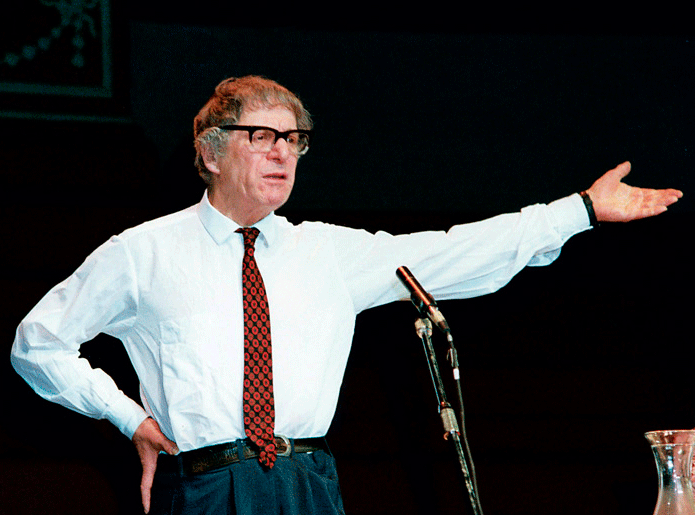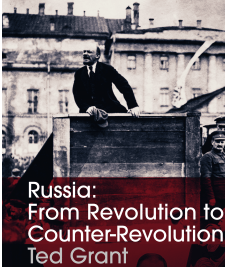Review by Mark Langabeer, (Hastings and Rye CLP)
I have recently moved house. That consumes a lot of time, but one of the few joys of moving was discovering a box of some books in my old loft. One of them was Ted Grant’s masterpiece, Russia, from revolution to counter-revolution published in 1997
It traces the evolution of Russia from the Bolsheviks victory in 1917, which I regard as the greatest social event in the 20th century. It provides an analysis of the degeneration of the first workers state under Stalin’s rule from a socialist standpoint and finally, deals with the break-up of the USSR and the restoration of capitalism in Russia. It is a must read for all who wish to understand why Socialism failed in the USSR and a gain a perspective on future developments in the former Stalinist states in Eastern Europe.
It is almost 30 years since the failed coup attempt by the ‘old guard’ to prevent the break-up of the USSR. How time flies. Grant explains that, due to the isolation of the revolution and general economic backwardness, a privileged caste emerged under the leadership of Stalin. Although this caste had nothing in common with genuine socialism, their power and privileges were derived from the planned economy and state ownership.
For a period, this did get results and growth rates were impressive by international standards, although, of course, this came at the cost of monstrous suffering of ordinary workers and peasants. Victory in WW2 gave the regime an added prestige and it became a superpower. However, in terms of productivity, Russia lagged behind the advanced western powers and by the 1970’s the economy had stagnated. Without the active participation of the working class, the economy suffered from mismanagement, waste, black marketing, and, not least, profiteering.
Unforeseen consequences
Fearing a revolt from below, Gorbachev introduced the policy of glasnost (openness)and perestroika (reconstruction). Glasnost was aiming to introduce elements of democracy and perestroika was aiming to increase productivity. Gorbachev’s liberalisation programme had unforeseen consequences and led to the collapse of the so-called Communist regimes in Eastern Europe and the break-up of the USSR.
The top bureaucratic caste was divided over which direction to go. The generals and those in charge of defence were hostile to the loss of states under their control and sought to end this by force in an attempted coup d’etat in 1991. Grant observed that the coup attempt was a botched affair, which lacked resolve from the plotters themselves. The bureaucracy was split three ways. Some wanted to restore the old order while those around Yeltsin wanted the speedy restoration of capitalism. The third group wanted to introduce a market economy at a slower pace. The failed coup led to Gorbachev’s dismissal and the rise of Yeltsin, hellbent on mass privatisation and all the misery that flowed from it.

Grant argued against the idea that the coup’s failure was due to a lack of a social base. Many dubbed perestroika as ‘katastrioka’ and yearned for a return to the old days. Workers in Russia remained, by and large, passive and “a plague on all your houses” was the dominant mood.
It’s not surprising that many workers within the Eastern Block would look at the more prosperous nations in western Europe with the hope of a better life under capitalism. At the time, the likes of Reagan and Thatcher were euphoric at the demise of the Stalinist regimes. Thatcher had a damascene conversion, with sudden support for strikes in Eastern Europe.
Since the 2008 financial crises and the pandemic, the free-market system has shown its frailties. The chaos caused by capitalist restoration within Russia has ushered in the likes of Putin and a revival of cold war relations. Events have shown that socialism is far from being dead and buried and Grant’s book is a must for all to read.



